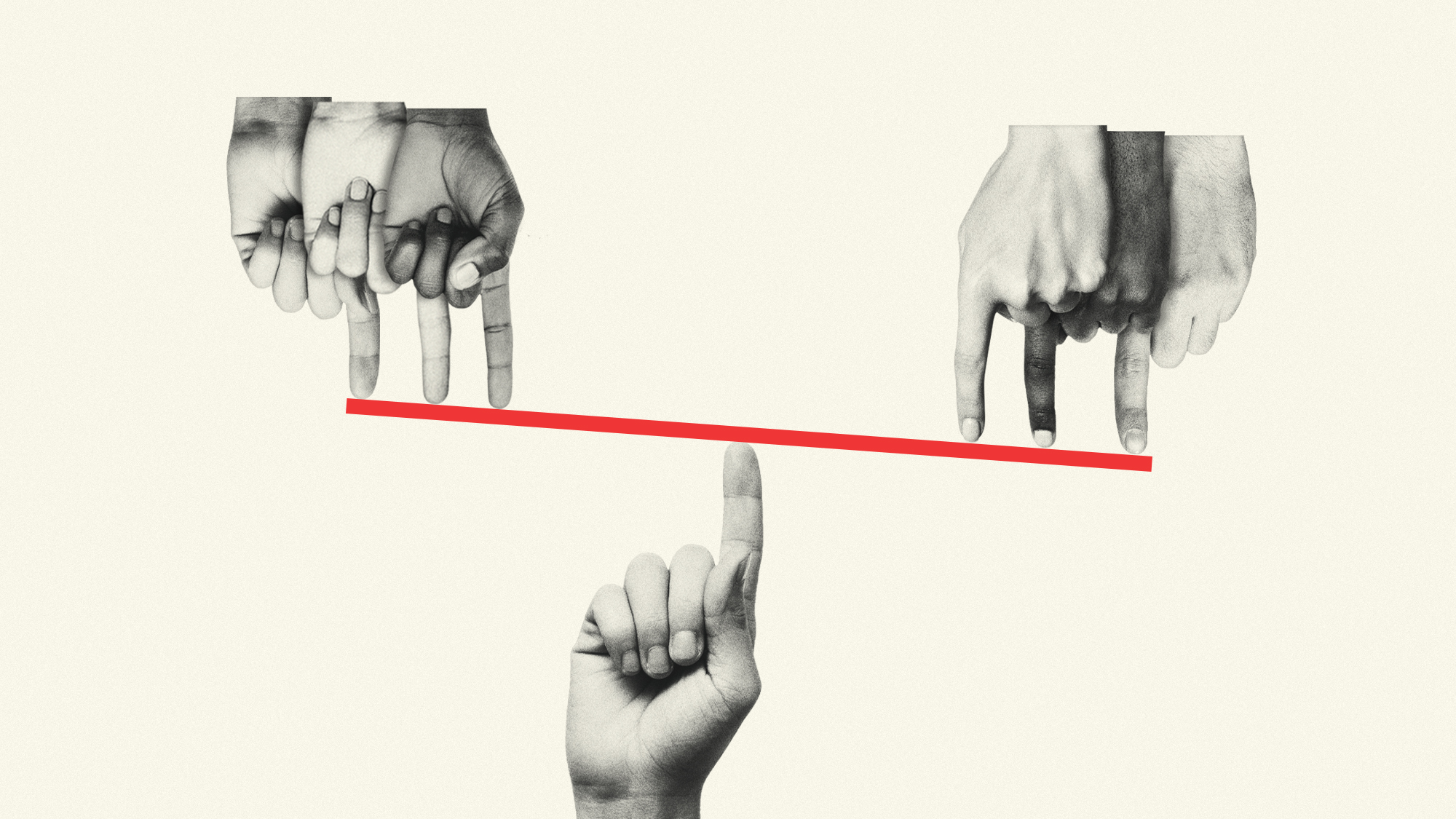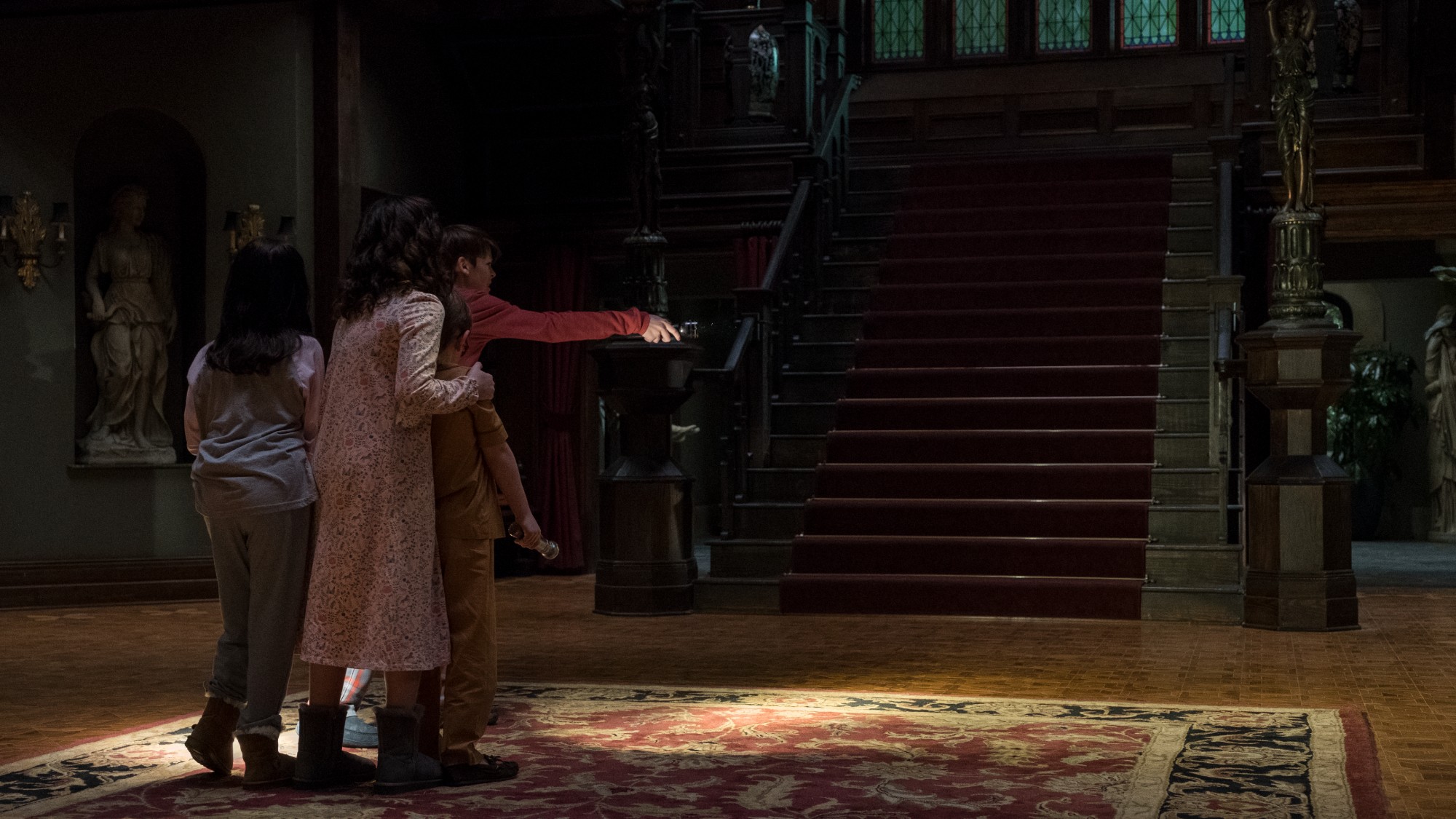Is the BBC biased?
The broadcaster accused of 'sickening' and 'shameful' slant on Gaza conflict

A free daily email with the biggest news stories of the day – and the best features from TheWeek.com
You are now subscribed
Your newsletter sign-up was successful
The BBC's guidelines oblige it to remain impartial across its news reporting, but the corporation has faced renewed scrutiny over its coverage of the Israel-Hamas conflict.
In December, the broadcaster's Middle East online editor, Raffi Berg, was accused by columnist Owen Jones of reframing stories to be favourable towards Israel in a piece on Drop Site entitled "The BBC's Civil War over Gaza".
The site said Jones spoke to "13 journalists and other BBC staffers" who offered "remarkable insights into how senior figures" at the BBC "skewed stories in favour of Israel's narratives". He added that concerns raised by staff members about bias had been dismissed.
The Week
Escape your echo chamber. Get the facts behind the news, plus analysis from multiple perspectives.

Sign up for The Week's Free Newsletters
From our morning news briefing to a weekly Good News Newsletter, get the best of The Week delivered directly to your inbox.
From our morning news briefing to a weekly Good News Newsletter, get the best of The Week delivered directly to your inbox.
Reports have suggested Berg is considering legal action against Jones. The BBC said it rejected "any suggestion of a 'lenient stance'" in its reporting and that it was the "world's most trusted international news source".
Is the BBC biased over Israel-Hamas war?
As with many issues, when it comes to Israel-Hamas the BBC is often simultaneously accused of bias towards each side. Danny Cohen, a former BBC television director, said in The Telegraph that the broadcaster's "bias" against Israel is "not just systemic" but "sickening and shameful". He accused the BBC of a "daily drip-drip of misreporting and bias" in its coverage of the Gaza conflict, including an "astonishing willingness to parrot the propaganda lines of terrorists without hesitation", and with "no context" or caveats.
But the corporation has also been accused by more than 100 employees of giving "favourable coverage toward Israel", said The Independent. The letter, anonymously signed by staff and more than 230 media industry workers and sent last November, said the BBC failed to provide "consistently fair and accurate evidence-based journalism in its coverage of Gaza".
Writing for Open Democracy, Dina Matar, professor at SOAS, University of London, accused the BBC of "asymmetrical coverage" of the war and an "apparent reluctance" to name Israel "directly and immediately as the source of violence".
A free daily email with the biggest news stories of the day – and the best features from TheWeek.com
The question of Israel-Hamas bias was the subject of a much-publicised research paper, called The Asserson Report, which used AI to analyse BBC reporting. It concluded that the BBC has "materially breached its obligations" of impartiality and revealed "overwhelming disparity" between reporting on the two sides, with sympathy for Palestinians "vastly outstripping sympathy for Israelis".
The report was produced by Trevor Asserson, a British lawyer who now runs Israel's largest international law firm, and has been described by The Telegraph as a "long-standing campaigner against BBC bias". The report was "extensively covered in right-wing news outlets", said Des Freedman at Byline Times, who accused it of using "flawed methodology" to generate "genuinely baffling findings".
What does the public think?
There is a trend among "right-wing populist voices" to claim that the BBC's political coverage is "systematically biased pro-Labour and anti-Conservative" and that the "silent majority" is being "suppressed", wrote Patrick Barwise at the London School of Economics. In reality, he added, the "majority of the public won't agree with the claim".
A YouGov poll from October last year suggests a similar outlook. Around 23% of those polled said the BBC was generally favourable to Labour, while 18% said it was generally favourable to the Tories. The results suggest the majority of the general public "explicitly or implicitly disagree" that there is a "systemic" bias either way.
A report by the Department for Culture, Media and Sport under the Conservative government in January last year suggested reforms to "boost confidence in the BBC's impartiality and complaints system" among the public, including plans for Ofcom, the media regulator, to police the BBC's news website and YouTube channel as part of the mid-term review of the corporation's charter. The Labour government has yet to outline any plans for BBC reform.
Is regulation the answer?
Ofcom currently regulates the BBC's TV, radio and on-demand output, but the government said last year that oversight should be extended to digital services to allow the watchdog to hold the BBC to account "in a more robust way".
After complaints about bias rose by 50% in 2023, the then culture secretary Lucy Frazer "set out reforms including plans for Ofcom, the media regulator, to police the BBC's news website and YouTube channel" as part of the mid-term review of the corporation's charter, said The Times. The regulator can now "take enforcement action if articles don't meet relevant broadcast standards", the BBC reported.
One useful idea is to "move the final stage of its complaints process on alleged bias – Gary Lineker's tweets and the like – to Ofcom", wrote Anne McElvoy for The i Paper. This would mean the BBC would no longer "be judge and jury in its own major controversies, which is hard going on everyone involved".
But attacking bias is "also about figuring out where coverage that the market or algorithms do not support should figure in the future, and how they can avoid extinction".
Harriet Marsden is a senior staff writer and podcast panellist for The Week, covering world news and writing the weekly Global Digest newsletter. Before joining the site in 2023, she was a freelance journalist for seven years, working for The Guardian, The Times and The Independent among others, and regularly appearing on radio shows. In 2021, she was awarded the “journalist-at-large” fellowship by the Local Trust charity, and spent a year travelling independently to some of England’s most deprived areas to write about community activism. She has a master’s in international journalism from City University, and has also worked in Bolivia, Colombia and Spain.
-
 The 8 best TV shows of the 1960s
The 8 best TV shows of the 1960sThe standout shows of this decade take viewers from outer space to the Wild West
-
 Microdramas are booming
Microdramas are boomingUnder the radar Scroll to watch a whole movie
-
 The Olympic timekeepers keeping the Games on track
The Olympic timekeepers keeping the Games on trackUnder the Radar Swiss watchmaking giant Omega has been at the finish line of every Olympic Games for nearly 100 years
-
 The 8 best TV shows of the 1960s
The 8 best TV shows of the 1960sThe standout shows of this decade take viewers from outer space to the Wild West
-
 February TV brings the debut of an adult animated series, the latest batch of ‘Bridgerton’ and the return of an aughts sitcom
February TV brings the debut of an adult animated series, the latest batch of ‘Bridgerton’ and the return of an aughts sitcomthe week recommends An animated lawyers show, a post-apocalyptic family reunion and a revival of a hospital comedy classic
-
 The 8 best hospital dramas of all time
The 8 best hospital dramas of all timethe week recommends From wartime period pieces to of-the-moment procedurals, audiences never tire of watching doctors and nurses do their lifesaving thing
-
 The 8 best horror series of all time
The 8 best horror series of all timethe week recommends Lost voyages, haunted houses and the best scares in television history
-
 Scoundrels, spies and squires in January TV
Scoundrels, spies and squires in January TVthe week recommends This month’s new releases include ‘The Pitt,’ ‘Industry,’ ‘Ponies’ and ‘A Knight of the Seven Kingdoms’
-
 The best drama TV series of 2025
The best drama TV series of 2025the week recommends From the horrors of death to the hive-mind apocalypse, TV is far from out of great ideas
-
 The 8 best comedy series of 2025
The 8 best comedy series of 2025the week recommends From quarterlife crises to Hollywood satires, these were the funniest shows of 2025
-
 A postapocalyptic trip to Sin City, a peek inside Taylor Swift’s ‘Eras’ tour, and an explicit hockey romance in December TV
A postapocalyptic trip to Sin City, a peek inside Taylor Swift’s ‘Eras’ tour, and an explicit hockey romance in December TVthe week recommends This month’s new television releases include ‘Fallout,’ ‘Taylor Swift: The End Of An Era’ and ‘Heated Rivalry’